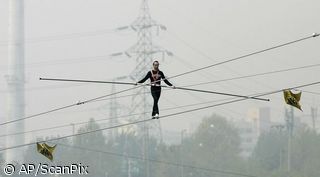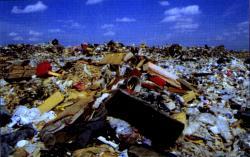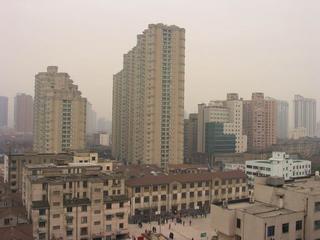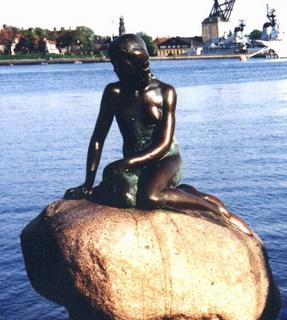Touted by the East German leadership as a barrier against "fascist provocation," the Wall was really an attempt to stop waves of skilled workers and educated people leaving a repressive state
Published:
10 November 2004 y., Wednesday
Touted by the East German leadership as a barrier against "fascist provocation," the Wall was really an attempt to stop waves of skilled workers and educated people leaving a repressive state. Around 3 million fled between 1945 and 1961, when the Wall went up. In time, it became etched in the Western consciousness as a symbol of inhumanity. More than 100 people were picked off by border guards while trying to escape; dozens of others were killed by mines.
However, by November 9, 1989, deep political shifts had prepared the ground for an earthquake. Leader Erich Honecker had been forced to resign and 4 million people had demonstrated for democracy. On that momentous day, the government's spokesman Guenther Schabowski announced that East Germans could go to West Germany if they applied for a visa.
Within minutes, people swarmed around the wall's border posts in what amounted to a siege. At midnight, they broke through to West Germany. That sounded the death knell for the Cold War and set the stage for German reunification a little more than a year later. But 15 years on, a very different kind of mass mobilisation took place. The demonstrations in Leipzig this August highlighted the economic plight of the former East German regions, where unemployment is double that of the western part.
When the old regime collapsed, many skilled workers found themselves on the wrong side of supply-and-demand economics.
Šaltinis:
euronews.net
Copying, publishing, announcing any information from the News.lt portal without written permission of News.lt editorial office is prohibited.
The most popular articles
 Moon bears pierced with metal tubes to extract an ingredient used in medicine have been saved from captivity in China.
more »
Moon bears pierced with metal tubes to extract an ingredient used in medicine have been saved from captivity in China.
more »
 Georgian acrobat Ramaz Garshaulishvili is trying to revive interest in the circus by demonstrating his rope walking skills.
more »
Georgian acrobat Ramaz Garshaulishvili is trying to revive interest in the circus by demonstrating his rope walking skills.
more »
 The latest trend for New Yorkers who are low on storage space - storing clothes in the oven and kitchen cupboards.
more »
The latest trend for New Yorkers who are low on storage space - storing clothes in the oven and kitchen cupboards.
more »
 Around the world 10 million people live in refugee camps - more than the population of several small European Union countries combined.
more »
Around the world 10 million people live in refugee camps - more than the population of several small European Union countries combined.
more »
 On World Press Freedom Day on 3 May the Commission will officially launch the Lorenzo Natali Prize for 2010.
more »
On World Press Freedom Day on 3 May the Commission will officially launch the Lorenzo Natali Prize for 2010.
more »
 What was once some of Albania's most beautiful coastline has been turned into toxic dumping grounds. Deborah Lutterbeck reports.
more »
What was once some of Albania's most beautiful coastline has been turned into toxic dumping grounds. Deborah Lutterbeck reports.
more »
 A set of two-square-metre capsule apartments in Beijing give struggling individuals a chance to have their own space.
more »
A set of two-square-metre capsule apartments in Beijing give struggling individuals a chance to have their own space.
more »
 The World Bank is adding its weight to efforts to save the world's endangered tigers.
more »
The World Bank is adding its weight to efforts to save the world's endangered tigers.
more »
 The statue of the Little Mermaid that has sat atop Copenhagen's harbour for nearly a hundred years is unveiled at the Shanghai World Expo.
more »
The statue of the Little Mermaid that has sat atop Copenhagen's harbour for nearly a hundred years is unveiled at the Shanghai World Expo.
more »
 Beijing city officials have come up with a novel way to combat the stench of the city's growing rubbish tips.
more »
Beijing city officials have come up with a novel way to combat the stench of the city's growing rubbish tips.
more »